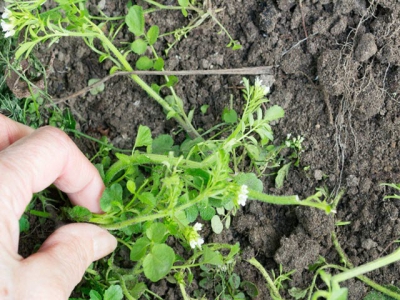How to Kill Weeds The Eco-Friendly Way

WHY WEED KILLERS
It’s become a tradition for gardeners faced with weed problems to pull out the herbicide spray and cover the unwanted weeds in chemicals, effectively poisoning the weed to death. But there are plenty of people who are looking for ways to kill weeds without all the harsh chemicals.
If you like to grow plants organically, or want to avoid the side effects of herbicides, there are plenty of natural weed-killing remedies that date back generations and are just as effective at their job. After all, our grandmothers didn’t have all the chemicals available to them, and they grew lush, weed-free gardens as well as we can now.
HELP THE EARTH WITH NON-TOXIC WEED KILLERS
Chemical weed-killers have a huge list of drawbacks. They’re expensive, harmful to other plants, pets and children, and most of all, they can leach into our water. When you use an herbicide and it rains soon after, all those chemicals end up in storm drains heading straight out into natural water supplies.
Herbicides and pesticides have been responsible for fish kills and algae kills. Alternately, they settle into the soil and work their way down to the natural groundwater level, where they can get into household and commercial wells directly, and eventually end up in streams and ponds.
NATURAL WEED KILLERS
Two major natural weed killers are salt and vinegar. Dish detergent mixed with vinegar or water also makes a good household weed-killer that is much gentler on the ecosystem than chemical sprays. Try mixing salt and water together in a spray bottle and spraying on weeds. But be warned: you should only use salt where you are not trying to grow anything else. It sterilizes the soil, so its best use is for weeds growing in sidewalks, driveways or between patio stones.
For a strong weed-killer, pour vinegar directly onto the weed’s roots. Lemon juice has the same effect, but is usually more expensive than vinegar. Some gardeners also swear by a hot pepper sauce like Tabasco for killing weeds.
If these classics don’t work, you can try boiling a kettle or pot full of water, then taking it out and pouring it right on the weeds, essentially boiling them to death.
GET RID OF ROOTS
Try the natural remedies above in combination with weeding, to cut down on the time-consuming effort of weeding by hand. Spray, let it take effect for a day, then rake or pull up the dying weeds to be sure they stay away. When you weed, you should be sure you’re using a good technique in order to get up the whole root of the weed.
Don’t settle for pulling up weeds by the stems, as this leaves the root behind to grow again. To avoid back pain, you can always use the trusty hoe to hack apart the roots of the weed and get right underneath it. This works on most weeds, but deep-rooted ones may survive a hoeing and resprout. For these, get a hand rake or hand cultivator and dig the roots right out of the ground.
And, of course, get weeds when they’re young, if possible. Early weed shoots are more tender and easier to pull.
Related news
 Organic Gardening Tips For Raised Beds
Organic Gardening Tips For Raised Beds Raised bed gardening is one of the best ways to get healthy, high-quality vegetables with less work and space than traditional row gardening.
 What is spinach?
What is spinach? Swiss chard is our best-known spinach. It is also known as ‘spinach beet’ and is the same genus as beetroot so the two varieties readily cross with each another
 Planting swiss chard
Planting swiss chard With Swiss chard, the cork-like ‘capsule’ that you plant is actually the fruit, which contains up to four seeds.